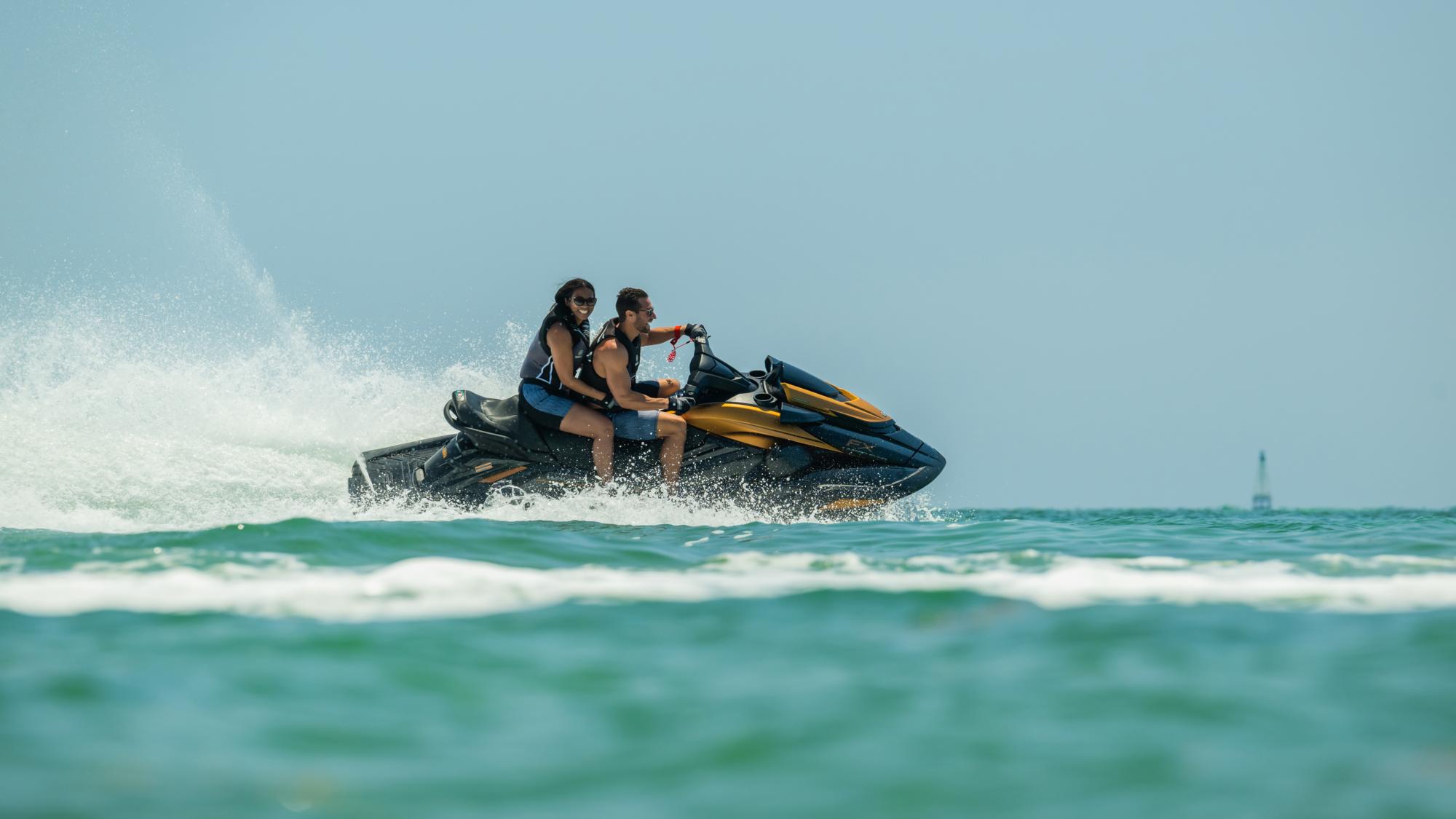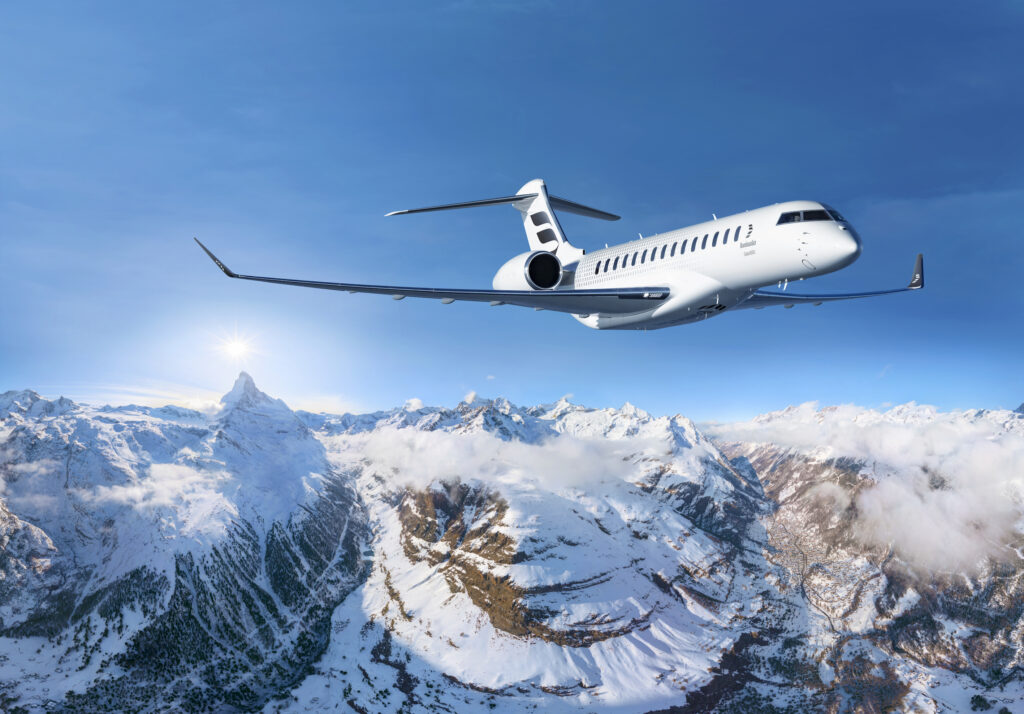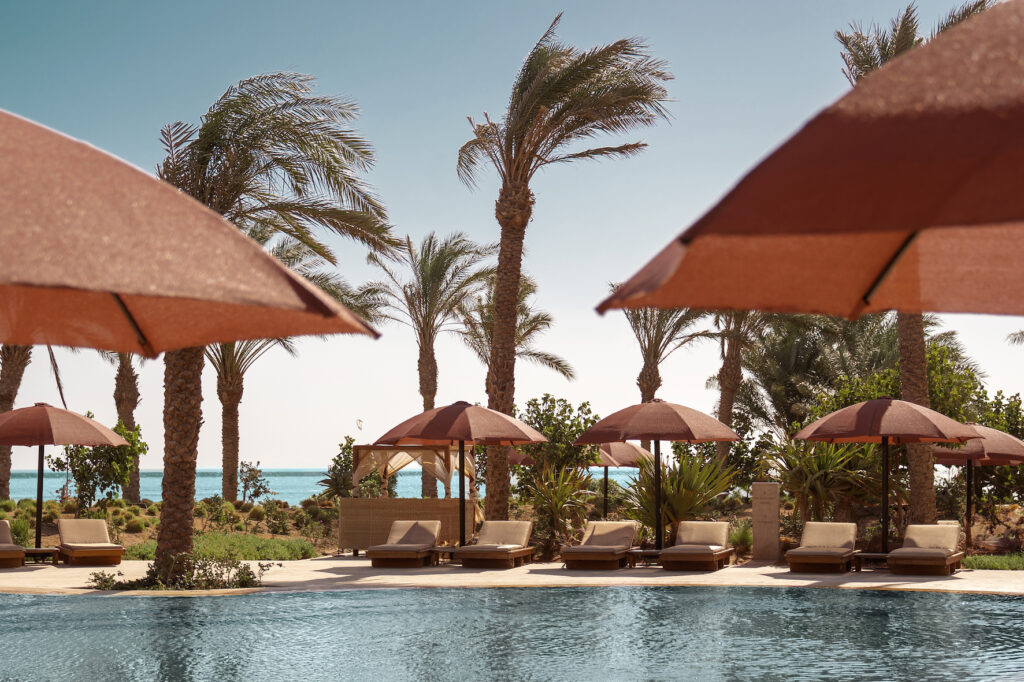This group shows how much water bikes have changed in the last 50 years. Here are our favorites across eleven categories.
Personal watercraft may have started out as wet-and-wild toys for grown-ups (hey, that’s not a bad thing!), with the first “water scooters” appearing in Europe in the 1950s. The first official standup, the Kawasaki JS 400 Jet Ski, appeared 50 years ago and sold more than 200,000 units. More than a decade later, the first sit-down jet bikes hit the market, thanks to Bombardier Sea-Doo and Yamaha WaveRunner, and started a craze that lasted into the late 1990s, when over 200,000 units were sold each year. While annual unit sales have dropped to about half that, the modern fleet has grown increasingly diversified.
The standup personal watercraft is still available from Yamaha and Kawasaki, as well as a handful of custom builders, but sit-down models dominate the market. These range from barebone two-seaters to more luxurious three-seat models to customized fishing models to electric watercraft to hybrid personal watercraft/inflatables that are priced at half a million dollars.
Thrill-seekers will still find an abundance of craft to satisfy that need for speed, but so too will adventure and camping enthusiasts, hard-core anglers, electric-power enthusiasts, and family buyers.
Here are our favorites across 11 categories.
Best Luxury: Kawasaki Jet Ski Ultra 310LX
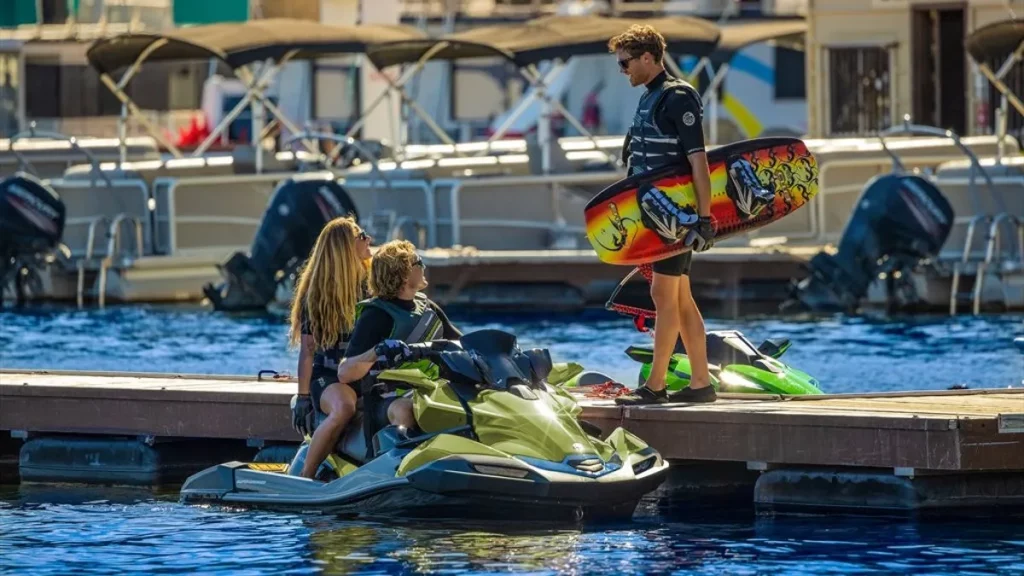
If you want bells and whistles from a mainstream player, Kawasaki’s Jet Ski Ultra 310LXreigns supreme. Its deep-V hull and supercharged 310hp engine have won championships in tough offshore conditions. Drive-control and auto-trim functions tweak power delivery and holeshot. Electronic reverse makes for intuitive low-speed handling while providing stopping power at speed. It’s the extras, however, that put it over the top. Standards include a 200-watt, four-speaker Bluetooth sound system, backup camera, and eye-catching LED running lights.
Best Family: Yamaha FX Limited SVHO
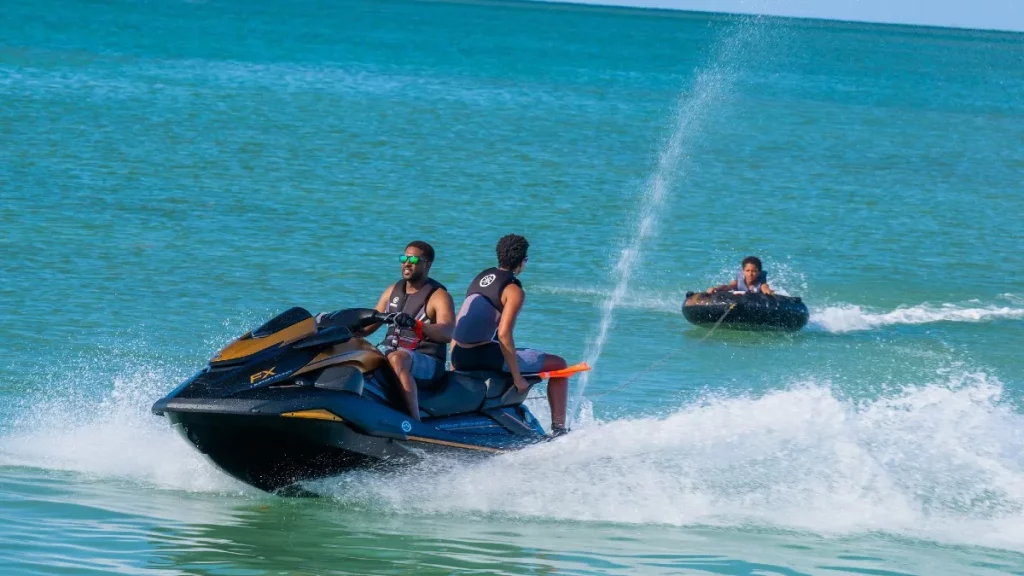
The bottom line for family buyers? They want a craft that’s comfortable, safe, and stable in a variety of water conditions, and reliable enough to count on every time they venture out. Yamaha’s FX Limited SVHO has all that in spades, as well as a long list of standards. They include a color touchscreen display, Garmin GPS/Fishfinder, Bluetooth sound system, and GPS mapping with geofencing capability to reign in young riders. Limited-package extras add an inflatable tube, towrope, and inflator, as well as often-purchased items like a custom cover, soft-sided cooler, fenders, and storage organizers.
Best High-Performance: Sea-Doo RXP-X 325
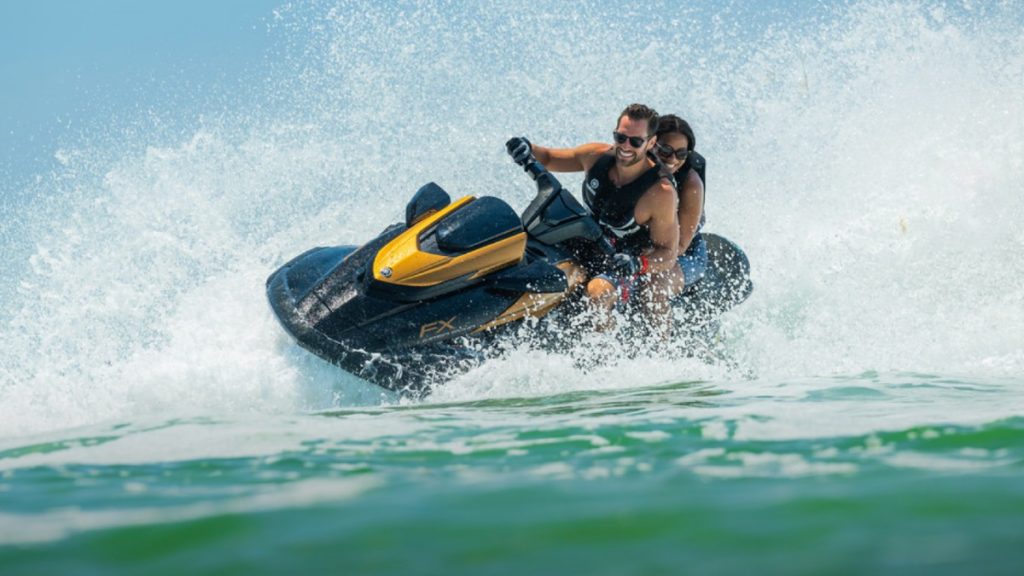
Boasting 325 hp, Sea-Doo’s RXP-X 325 is the current Top Gun in the personal watercraft market. Created by some substantial tweaking of the existing Rotax 1630 ACE engine, the craft rockets to 60 mph in 3.4 seconds. Top speed flirts with 70 mph. Cool features include a movable backrest to lock riders into the controls, a carbon-fiber hood, and a hydraulic steering damper that can be adjusted to eliminate unwanted feedback through the handlebars in rough conditions.
Best Motorbike-Style: Searider Searacer
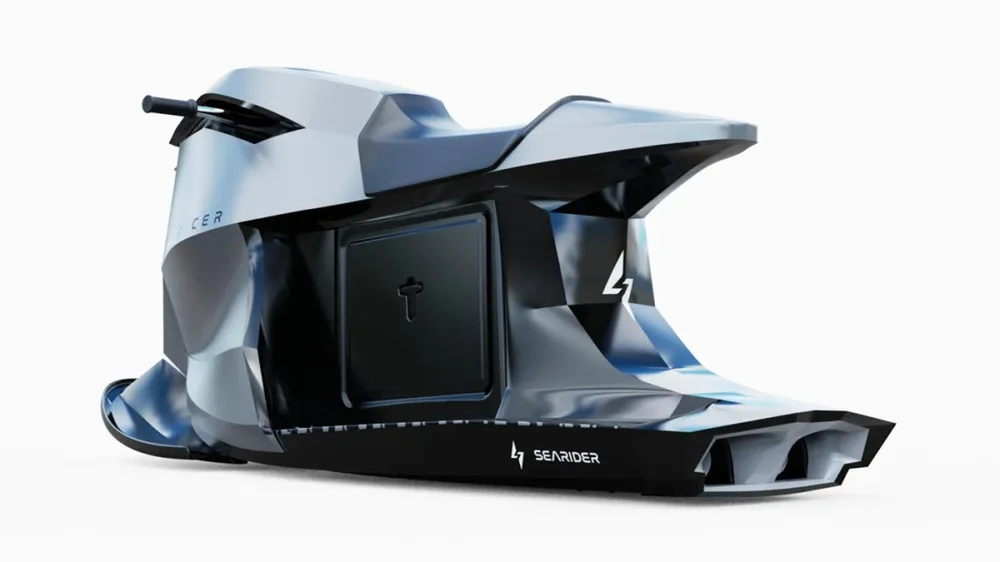
Yamaha’s WaveBlaster was once considered the closest thing to a motorbike on the water, and while it still boasts a legion of hardcore fans, the craft hasn’t been produced for nearly three decades. Searider’s Searacer just may step in to fill the void. Recently unveiled at boot Dusseldorf, the electric-powered, superbike-influenced design features a pivoting front ski for directional control and dual electric-motor powertrain. Weighing in at only 143 pounds, the Searacer promises top speeds of 48 mph and up to 50 minutes of ride time per charge.
Best Camping/Adventure: Sea-Doo Explorer Pro 170

Sea-Doo created an entire “adventure” category to target those who like to explore, camp, and push their riding beyond the norm. The Explorer Pro 170 is built to be fuel-efficient, haul an impressive amount of gear, and shelter its occupants. The latter is achieved by a front windscreen. As to the gear, Sea-Doo’s spacious front storage is complemented by an extended aft deck featuring pop-up cleats that anchor coolers, storage containers, or additional fuel caddies. Pick a direction on the Garmin GPS, load up the supplies, and camping equipment and head for the horizon.
Best Electric: Taiga Orca Performance

Taiga Motors Orca Performance delivers a ride that is without emissions, smell and, other than the whirr of the driveshaft, almost without noise. A 120 kW electric motor produces the equivalent of 160 hp, pushing the Orca to 62 mph in “Wild” mode. As with all electric vehicles, it’s better to tame things down and stretch the runtime to two hours before recharging. Standard household current will bring a depleted battery back to full charge in 14-20 hours. Level 2 charging can shorten that number to 3.5 hours or at Level 3, it’s just a brief 30 to 40 minutes.
Best Freestyle: Rise Icon
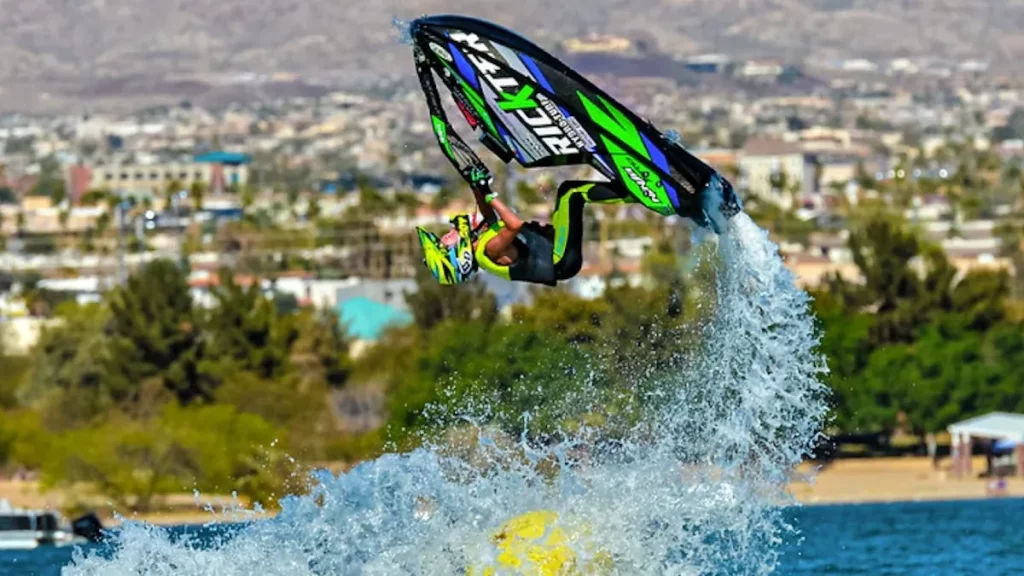
Kawasaki and Yamaha may have stepped away from lightweight, freestyle-oriented standups, but brands like Rise have taken things to the next level for riders who want to slash ocean waves or pull off backflips and spins. The Icon boasts an advantageous horsepower-to-weight ratio thanks to a 701cc Yamaha engine outfitted with plenty of aftermarket upgrades combined with a sleek, lightweight hull and deck. Added features include aluminum-tube handlepoles that bring riders closer to the boat’s pivot point, pivoting thrust nozzles that help send the bow skyward, and plenty of padding and footholds to stay locked in.
Best Hybrid: T3MP3ST Maverick GT Ski + Jet RIB
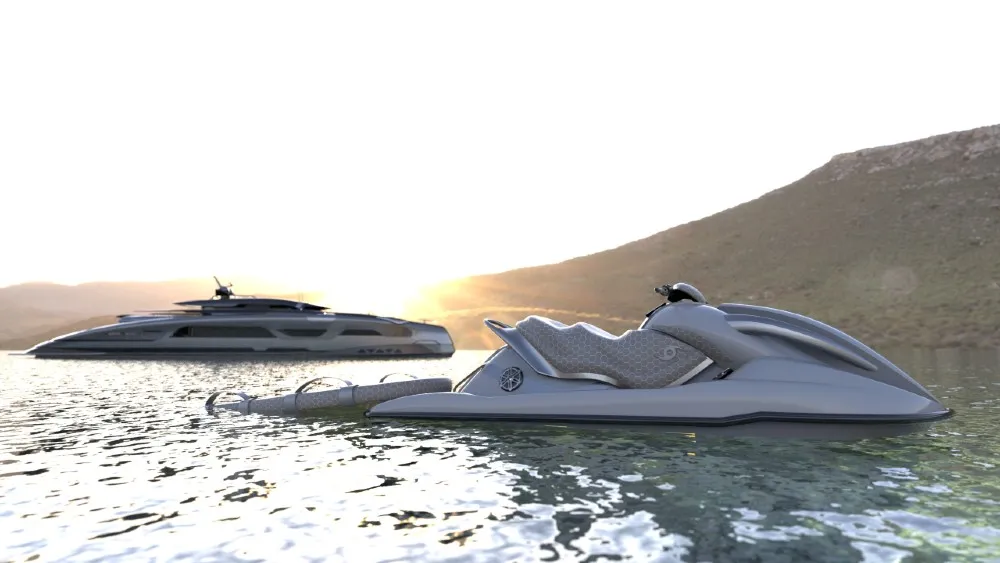
Custom built to satisfy the truly discerning buyer, T3MP3ST’s Maverick GT boasts carbon-fiber construction, a 550hp electric motor and a broad variety of material and color choices, making it one of the most unique personal watercraft on the water. Alone, the Maverick GT was originally conceived as a tow-in vehicle for big-wave surfers at massive breaks like its namesake Mavericks. But dock the craft into its the Maverick Tender (a 30’ RIB) and it takes on a bigger presence, expanding the craft’s possibilities for up to eight passengers.
Best Fishing: Sea-Doo Fish Pro Trophy

Other manufacturers have embraced fishing, but Sea-Doo’s Fish Pro Trophy remains the best catch. Based on Sea-Doo’s GTX platform, it’s stable at both rest and trolling speeds and more than ready for offshore conditions. It’s the boat’s standards, however, that reel in anglers. Standouts include a touchscreen Garmin fishfinder, 13.5-gallon cooler/livewell, debris-free pump system, trolling-specific speed control mode, and a clever tweak that creates an elevated fishing chair. Think the “trophy” moniker is overkill? YouTuber Emmanuel Williams recently caught a swordfish off this very boat.
Best Foiler: Valo Hyperfoil

Foils are suddenly the rage in America’s Cup racing and SailGP, not to mention on powerboats like the Navier 30 and Candela C-8. The technology is also what makes the Valo Hyperfoildifferent than anything on the water. California start-up Boundary Layer Technologies defines its jet bike–like vehicle as a high-performance electric hydrofoiling craft with wings to fly above the water. That barely begins to describe the R&D that went into making this fuel-efficient craft work. The Valo has three elements that retract. There’s an electric motor at the stern and two foiling wings designed for a coordinated deployment. BLT says the Skyride system measures the position of the craft 100 times per second, modifying the flaps on the wings and other leading edges. All this technology isn’t cheap. The Valo Hyperfoil is priced at $59,000, with a reservation of $500 required to secure a production slot.

